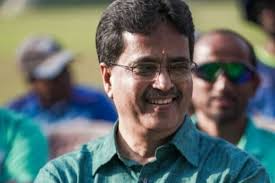New criminal laws reflect technology-driven and time-bound approach to justice delivery: Tripura CM Saha

Agartala, July 2025 — Tripura Chief Minister Dr. Manik Saha has welcomed the new criminal laws, calling them a bold step toward faster, more transparent, and citizen-friendly justice. He said the reforms focus on technology, victim protection, and strict timelines, moving away from outdated colonial-era laws.
Speaking at a press conference in Agartala, Saha described the changes as “long overdue.” He added that the earlier laws caused delays and confusion. Now, the new system promises clarity and efficiency.
Faster Trials With Strict Timelines
A major goal of the new laws is to speed up the trial process. The Bharatiya Nagarik Suraksha Sanhita (BNSS) requires police to file charge sheets within 60 days. Courts must deliver judgments within 90 days.
This change is expected to reduce the years-long delays that have frustrated both victims and the accused. Saha explained that quick decisions will restore trust in the justice system.
Digital Tools Lead the Way
The reforms include several technology-driven features. Citizens can now:
- File e-FIRs at any police station
- Track the status of their case online
- Get free FIR copies instantly
- Submit digital evidence through official portals
In addition, police must video-record all searches, evidence collection, and victim statements. This ensures transparency and prevents misuse of power.
“These tools make justice more accessible and open,” Saha noted.
Stronger Protection for Victims
The laws place a strong focus on supporting victims, especially women and children. Key provisions include:
- Allowing Zero FIRs, which can be filed anywhere, even outside the crime location
- Ensuring female magistrates handle sensitive cases
- Requiring medical reports within seven days
Tripura has already trained over 3,000 police officers, prosecutors, and legal staff to follow these rules. According to Saha, “No victim should feel helpless anymore. The system must stand with them.”
Improved Forensic and Legal Systems
To strengthen evidence collection, Tripura has introduced mobile forensic vans across all districts. These vans will reach crime scenes faster, helping secure proof before it gets tampered with.
The state is also setting up District Prosecution Offices, each led by a Deputy Director. These offices will coordinate better with courts and police to speed up cases.
Saha highlighted that Tripura’s conviction rate has already improved. In three years, it rose from just 8.2% to almost 30%.
Ensuring Witness Safety and Fair Trials
The Bharatiya Sakshya Adhiniyam (BSA) introduces new protections for witnesses. The law allows courts to keep witness identities secret in sensitive cases. In serious matters, witnesses can also receive police protection.
For the first time, courts can now try absconding accused without waiting endlessly for their return. This change ensures that victims don’t have to suffer delays because someone refuses to show up in court.
Public Awareness Is a Priority
Tripura Police have started public education drives across the state. With help from NGOs, they are holding workshops, spreading digital posters, and distributing leaflets in local languages.
CM Saha said, “The law only works if people understand their rights. We’re making sure everyone knows how to use these new tools.”
He urged citizens to stay informed and not hesitate to reach out to police or legal services.
Plans for Virtual Courts in Rural Areas
The state is also working on digital courtroom systems. These virtual courts will help people in remote areas attend hearings without traveling long distances.
Tripura has asked the central government for support in launching video-based trials for minor cases and bail hearings. This step could further reduce case backlogs.
A New Era for Justice in Tripura
With these laws, Tripura is taking a bold step toward modern justice delivery. The combination of technology, victim support, and stricter deadlines could make the system faster, fairer, and more reliable.
Saha concluded,
“For years, justice was slow, confusing, and out of reach. Now, we’re building a system that truly serves the people.”
The coming months will reveal how well the state puts these promises into action. However, the intent and structure offer real hope for lasting change.






